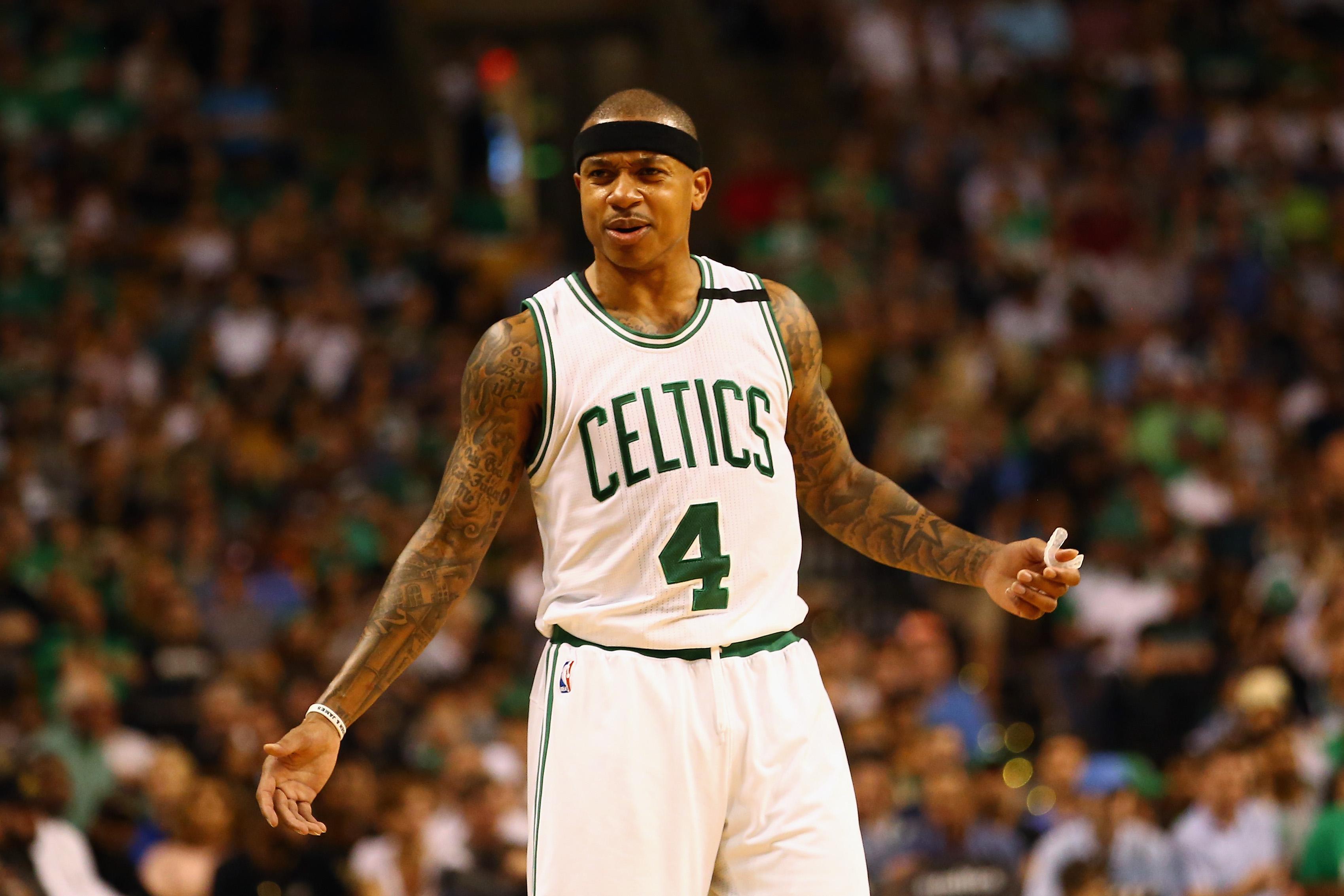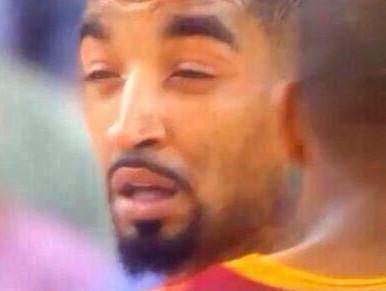
The biggest shock to come of Cleveland’s out-of-nowhere trade of Kyrie Irving during the standstill, tumbleweed-crossing days of the late-August NBA offseason was that the Cavaliers actually managed a solid return. That lasted for less than a week. Now, that surprise comes from Isaiah Thomas — his right hip, specifically, and the unhealed labral tear in it that could spike the deal before it goes through.
Saturday, four days after the trade that would send Irving to Boston for Thomas, Jae Crowder, the 2018 unprotected Brooklyn pick, and Ante Zizic, was agreed to, ESPN’s Adrian Wojnarowski reported that the Cavaliers were unhappy with the results of Thomas’s physical. Now, Cleveland has until Wednesday to decide whether or not to veto the trade. And though there are already tons of “what-ifs” going forward — what if Isaiah’s injury will kill the deal; what if Boston is willing to give up another asset, as Woj says the Cavs are now seeking; what if LeBron James is watching this all unfold from Los Angeles, his home — there are many questions about how we got here, too.
Did Boston know the extent of the injury? Or did Cavs owner Dan Gilbert know how bad the injury was, and was this his plan all along? Welcome to Conspiracy Corner, where we’ll explore all the twisted scenarios that could’ve put Boston and Cleveland in this predicament. Put on your dazed face (J.R., if you could kick us off —

— thanks) and prepare to unfold the highly unconfirmed.
Danny Ainge Knew What He Was Doing
Maybe when Ainge said on Wednesday that Isaiah’s hip injury played “some” role in the decision to trade him, the Celtics president was trying to save face. He had, after all, just traded the fan base’s most adored new icon, a player who gave the playoff performance of his life just days after the death of his sister.
But those comments aged poorly after the results of Cleveland’s physical. Before the trade, Ainge played the role of executive who thought the injury was no biggie. In July, he said Isaiah was “full-speed ahead” and “making good progress” when announcing that the Celtics and I.T. elected, together, that surgery wasn’t necessary. Which, in retrospect, is like painting over mold the week before putting up a For Sale sign out front. Isaiah’s doctors weighed in on the decision, too, but electing to forgo surgery could be read as a short-term fix that one hopes the buyers will miss after fawning over the shiplap (that’s the Brooklyn pick in the metaphor).
The Cavs Roped the Celtics In
Let’s consider that, somehow, Cleveland was … hip [winks at camera] to the degree of Isaiah’s injury before the mandatory medical evaluation. His torn right labrum is a recurring issue — it was first aggravated against Minnesota on March 15 — but it didn’t require surgery even after the pain reached a severe, season-ending degree. And that end came against the Cavs in Game 2 of the Eastern Conference finals, so yeah, they were watching.
So why would Cleveland make this deal knowing it would have the power to rescind the offer? For one, it’s a bargaining chip — Isaiah Thomas and Jae Crowder were happy in Boston before, but post-trade, might feel betrayed if they’re made to return. So the Celtics become more desperate to push the deal through, and are forced to offer more. (OK, so Joe Vardon of Cleveland.com reported that the Cavs haven’t asked for any other assets — YET).
Can I get Future of the Franchise for 800? Cleveland will reportedly inquire about adding Jayson Tatum or Jaylen Brown to the package, but Wojnarowski reported that the Celts won’t loosen a grip on either player. Which, yeah: As if giving up a future first-rounder from a Kickstarter Nets squad and Crowder’s perimeter defense wouldn’t be enough, giving up Brown or Tatum (and possibly taking back a rightfully bitter Isaiah) would make the trade ridiculously lopsided. Sorry, Gilbert — if this was the plan, the dots and timelines simply don’t add up (but you could have a future in showrunning!).
Cleveland Wants to Stay King of the East
Running with the theme that the Cavs knew the truth about Isaiah’s injury, maybe Cleveland made the deal with the understanding that it wouldn’t go through. This sounds like that three-hour mark of a YouTube conspiracy video where they lose you and you’re wondering when you last saw daylight, but think about it: Were the Cavs really ever going to trade Kyrie to a top Eastern Conference contender?
If the deal doesn’t go through, and Crowder and Thomas remain Celtics, Boston could face unmendable on-court issues. Thomas would return to Boston with proof that the franchise never intended to bring him the Brinks truck he so desired, and all the drive that powered him last year would be refocused toward impressing other organizations ahead of free agency next summer. Like Kyrie, I.T.’s game never revolved around facilitation — Boston had better believe an avengeful version of the playmaker is way less likely to reach even last year’s 5.9 assists per game.
LeBron, on the other hand, sent Kyrie off with a thank you. It seems like a reconciliation between Kyrie and the Cavs would be less messy. But for Cleveland’s biggest conference threat, the Celts — who had a content Jae Crowder and a loyal Isaiah Thomas — the return could be destructive.